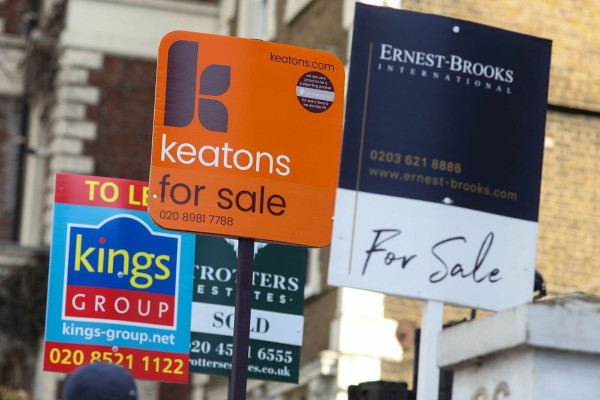

In its latest house price index, released today (December 7), Halifax found annual house price growth slowed to 4.7 per cent while the average property price sat at £285,579 in November (down from £292,406 last month).
This month’s fall reflects the “worst of the market volatility over recent months” according to Halifax mortgages director, Kim Kinnaird, who said the market may be going through a process of “normalisation”.
“When thinking about the future for house prices, it is important to remember the context of the last few years, when we witnessed some of the biggest house price increases the market has ever seen.
“Property prices are up more than £12,000 compared to this time last year, and well above pre-pandemic levels,” Kinniard explained.
Since March 2020, average property prices have increased by £46,403.
In Kinniard’s opinion a market slowdown was expected given the macro economic headwinds and following the extensive house price inflation over the past few years.
Pandemic effect dwindles
A slowdown in growth was evident in all regions in the UK apart from the North East during November.
House price growth inched up marginally in the North East with annual growth of 10.5 per cent, up from 10.4 per cent in October.
With an average property price of £173,587, the North East is the only area of the UK with annual house price inflation in double digits.
Wales and the South West have seen the sharpest slowdown in annual growth, with Wales at 7.9 per cent compared to 11.5 per cent last month and the South West at 8.4 per cent compared to 10.7 per cent.
Halifax highlighted this is notable given both areas were “key hotspots” of house price inflation during the pandemic.
It said this suggests that “previous drivers of the market such as the race for space and heightened demand for rural living are now receding”.
Annual growth in Scotland has also slowed, now at 6.5 per cent compared to 7.4 per cent last month. While in Northern Ireland, annual growth sat at 9.1 per cent compared to 9.7 per cent last month.
Responding to the figures, mortgage brokers noted that the slowdown in price growth may be partly as a result of people holding off on purchases until the new year.
Hannah Bashford, director of mortgage brokerage, Model Financial Solutions said: "Everyone has checked out for Christmas. We’re seeing most people adopt a wait-and-see and let’s-look-seriously-in-January attitude.”
“This has stopped the market in its tracks and it’s no wonder house price growth has slowed,” she added.
In Bashford’s view, cautious surveyors and a rise in down valuations are also causing price adjustments.
“This is not a bad thing, as house prices have been over inflated since the pandemic and to ensure first-time buyers have a chance of buying by the time they’re 37 — the average age of a first-time buyer — prices had to come down.
“January is going to be busy when all the festivities are over and people want a project for the new year,” Bashford said.
jane.matthews@ft.com



